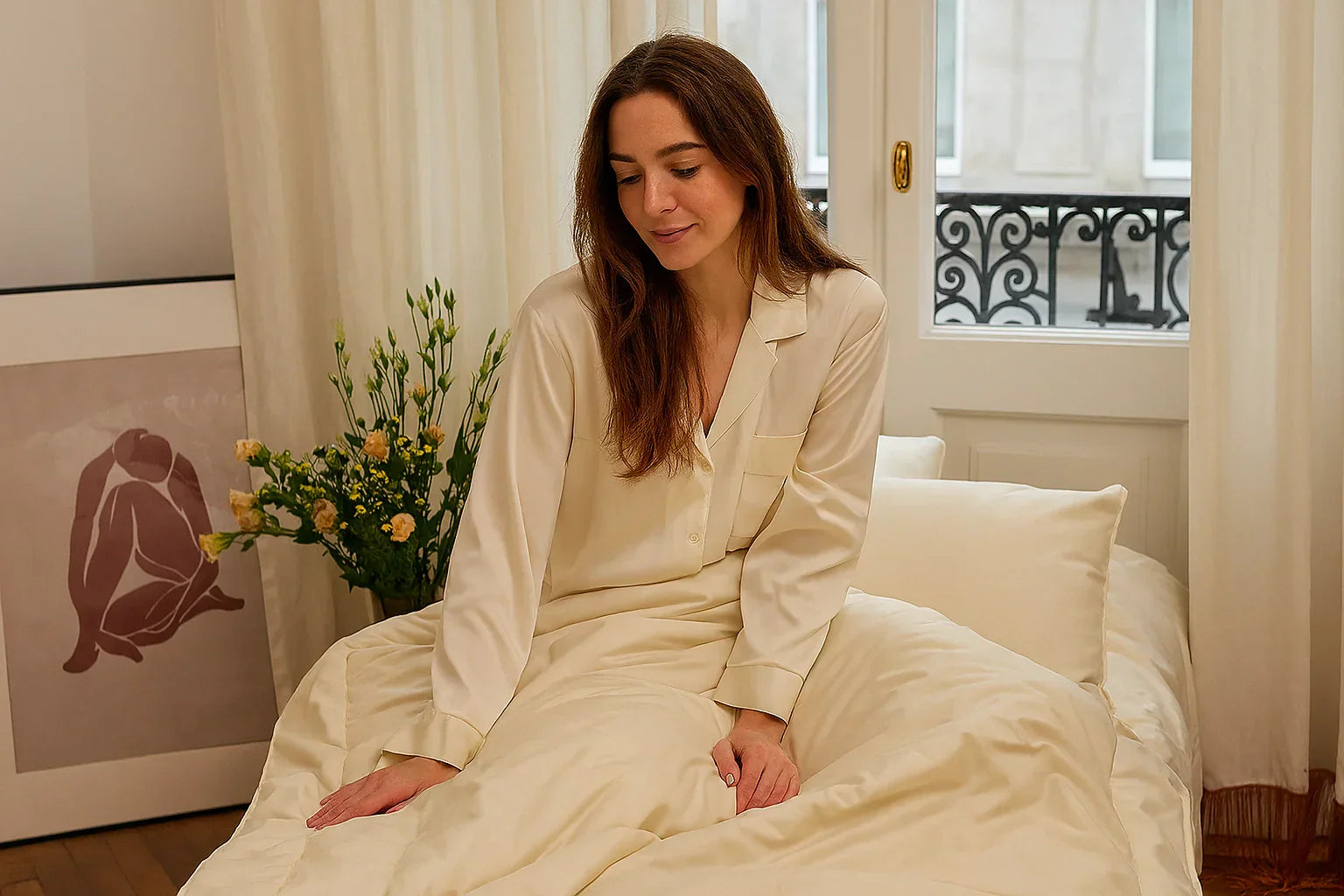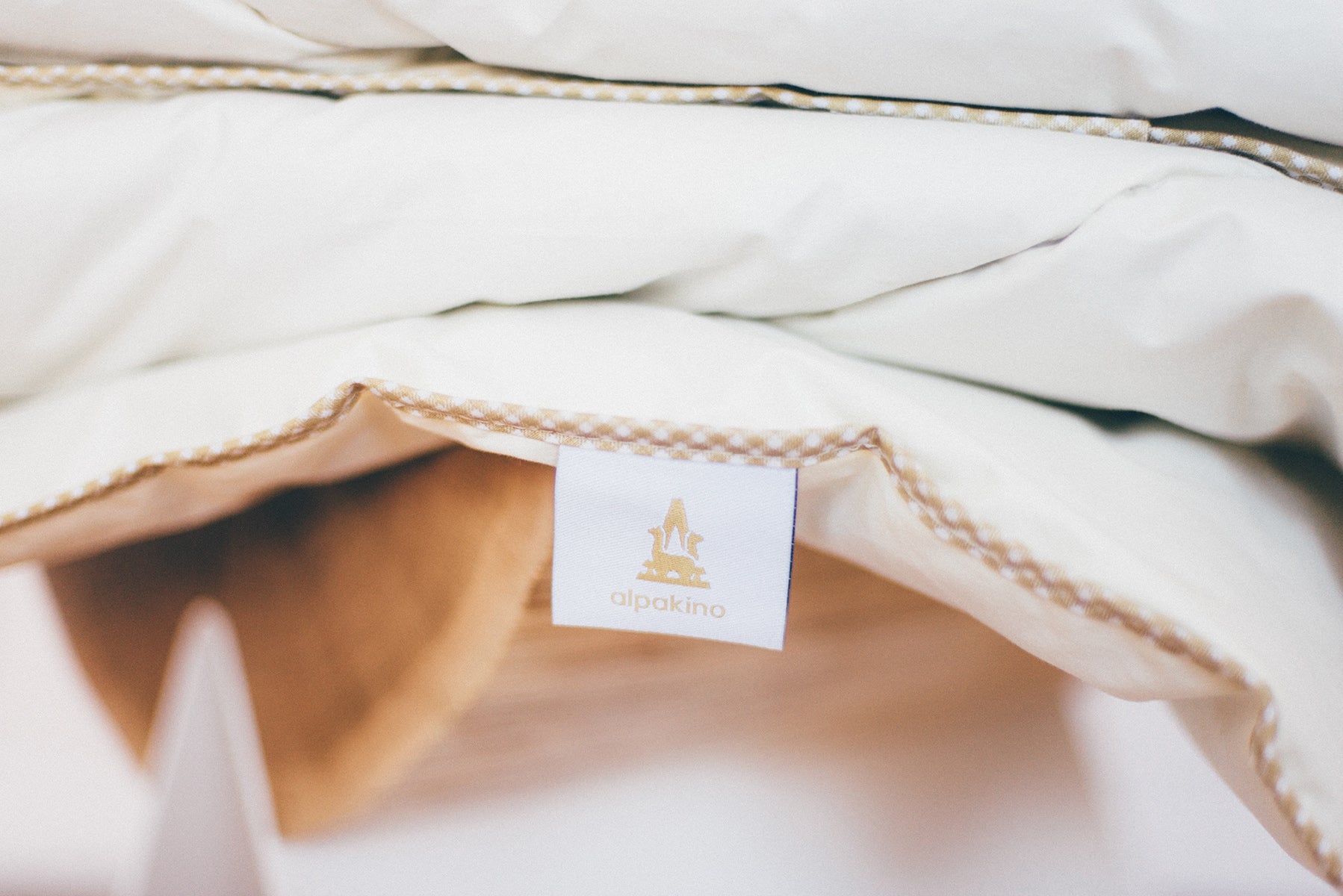Buying a duvet - what to pay attention to?
·

·
-
Because we spend an average of 6-8 hours sleeping each day, it's crucial that it's as effective as possible, allowing us to properly rest and regenerate. It's no coincidence that the conditions in which we spend this time are crucial. Many factors influence sleep quality, from the environment itself, the room itself, its light exposure, to the mattress and bedding. Preferences in this area can vary, so choosing the right duvet can often be a challenge. We wonder whether to choose feathers, wool, or perhaps a synthetic filling. Besides the variety of fillings, duvets also vary in price, often significantly. What causes this, and which one should we choose? When choosing a duvet, it's worth considering the following:
What size bedding should I choose?
There are varying standards for duvet sizes around the world. In Poland, the accepted standard is that a 140x200cm or 160x200cm duvet is the best size for one person. A slightly less common size is 180x200cm, which is often used by two people, but they will certainly feel more comfortable under a 200x200cm or 200x220cm size. It's obvious that the larger the duvet size, the higher its price. We invite you to read our guide on duvet sizes in European countries.


What bedding is good for allergy sufferers? - Filling and seasonality
The most traditional solution is to purchase an all-season duvet , but some prefer something warmer in the winter and lighter in the summer. The character of a duvet and the comfort of sleeping under it are determined by the type and degree of filling. The most popular fillings on the market are:
- Down – a luxury product, duvets made from it are among the most expensive. They are very lightweight, yet also provide excellent insulation against the cold. Because they wick away moisture, they allow the skin to breathe. Manufacturers of this type of duvet, depending on the thickness and amount of down used, offer all-season, summer, and winter duvets. However, this type of duvet is not suitable for allergy sufferers, as it often causes allergic reactions.
- Feathers – a cheaper alternative to down. Like a down duvet, a feather duvet wicks away moisture, but it doesn't insulate as well. It's also heavier than a down duvet and usually less resilient. Unfortunately, this duvet isn't hypoallergenic either.
- Wool – according to research conducted so far, duvets with wool fillings are excellent for relieving rheumatic ailments, spinal degeneration, and muscle inflammation. The most popular duvets of this type include those made from sheep's wool, merino wool, or alpaca wool . Each has different properties. Generally speaking, wool duvets are suitable for year-round use, as they perfectly insulate against cold in winter and prevent overheating in summer. However, not all of them are suitable for allergy sufferers. If you value thermoregulatory and anti-allergic properties, you should choose a wool duvet.
Alpaca bedding . This is the highest quality wool, considered luxurious. Alpaca wool is the only one free of animal fat—lanolin, which is responsible for allergic reactions. Furthermore, it is resistant to dust mites and does not retain moisture, making it an excellent solution for those who suffer from excessive sweating. Alpaca bedding ensures healthy and relaxing sleep and helps regenerate the body. The prices of wool duvets vary greatly, depending on its quality and properties. - Synthetics – the cheapest and most popular solution. These duvets are typically filled with polyester or silicone granules. They are safe for allergy sufferers and, above all, easy to care for because, unlike natural fillings, they can be washed at home. Unfortunately, synthetics do not wick away moisture and have poor thermoregulation properties, so it's worth investing in two types – a summer and a winter one.

When choosing bedding, it is not worth saving
Sleep has a huge impact on our health and well-being, so it's worth investing in a top-quality duvet. Spending so much of each day in bed, we should consider quality and features rather than price alone when purchasing a duvet. Therefore, it's important to remember important factors such as anti-allergic properties, thermoregulation, environmental friendliness, and durability. We're proud that the ALPAKINO alpaca wool duvet combines all the best features a duvet can offer, and it's undoubtedly a wonderful investment in our comfort.


